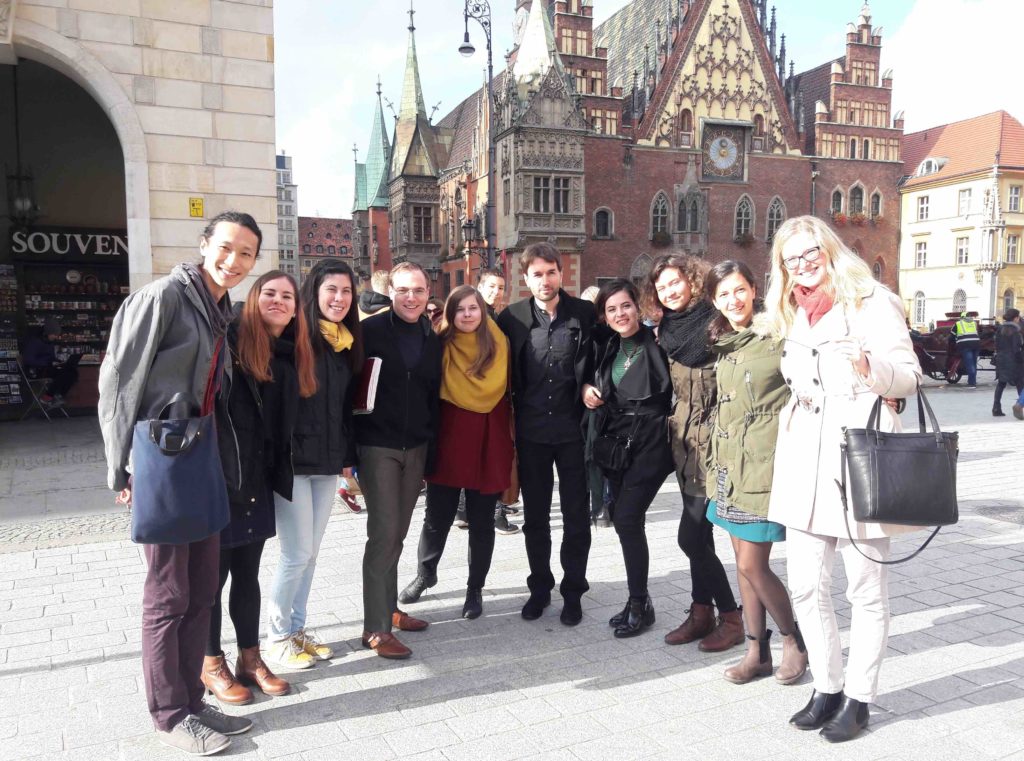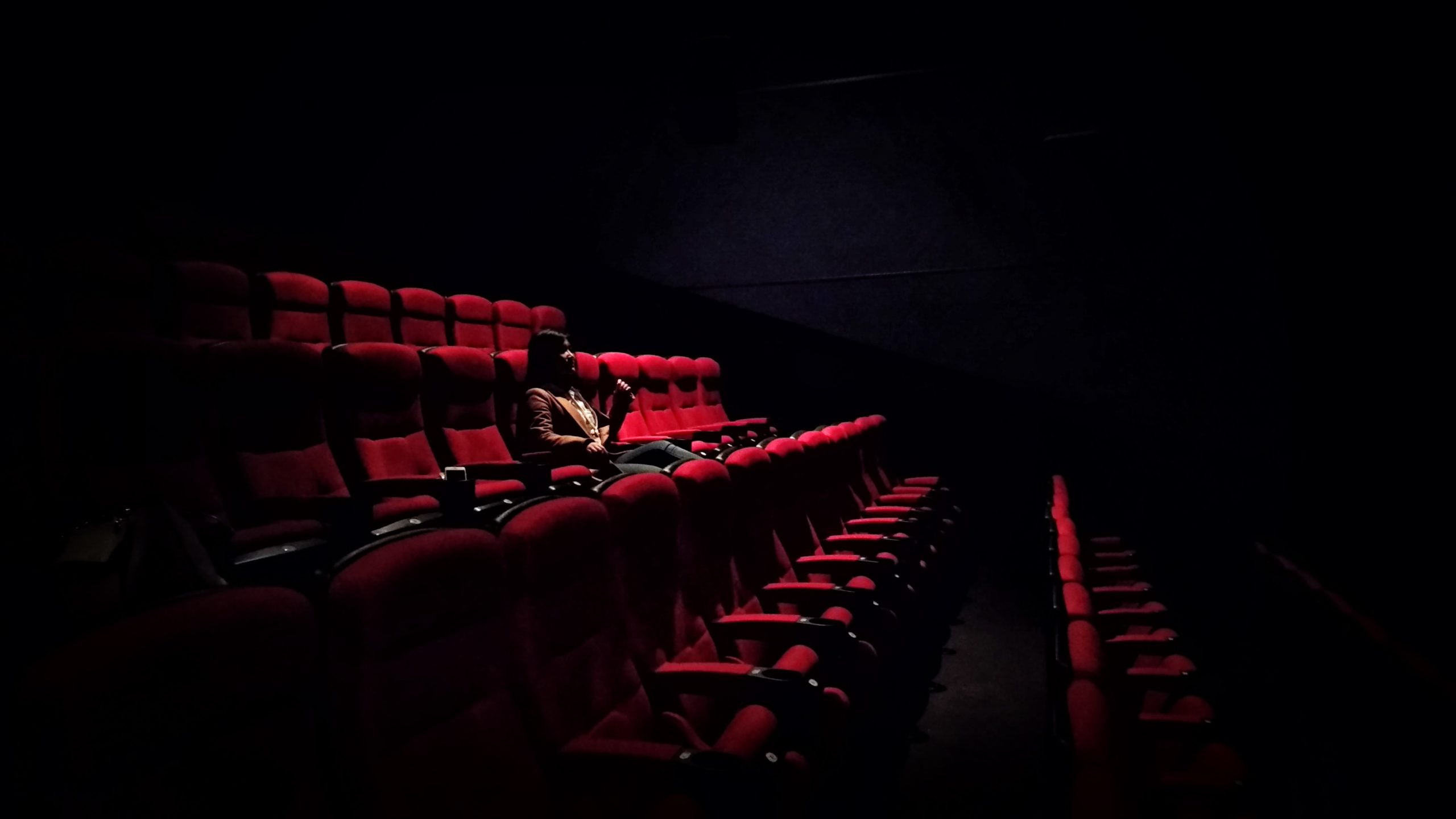IATC Young Critics Seminar in Poland in October, 2016
ATCA’s Russell Warne (managing editor, Utah Theatre Bloggers Assn.) files a very interesting report on the YCS he recently attended in Poland, commenting especially on the similarities and differences between the concerns and issues addressed there and in the U.S. (To read, cick link here or below.) Such seminars are sponsored irregularly by the International Association of Theatre Critics, of which ATCA is the American affiliate. Expenses (including housing and some food) are generally paid by the hosts, and ATCA or its Foundation can often help with travel. Watch the ATCA eBlasts for info on future seminars, or keep an eye on the IATC website.

Russell Warne writes:
Thanks to the financial support of Foundation ATCA (and some lucky timing with the schedule at my day job), I was fortunate enough to attend the Young Critics’ Seminar, sponsored by the International Association of Theatre Critics (IATC). Held in conjunction with the Theatre Olympics in Wrocław, Poland, the Oct. 19-25, 2016 young critics’ seminar was a 6-day educational development event in which a senior IATC member, Octavian Saiu from Romania, led discussions about all aspects of modern theatre criticism. I was one of ten young critics from ten countries that participated in these conversations.
What fascinated in my time with the moderator and with other young critics was how relevant the discussions were for my day-to-day practice as a theatre critic in America. Although it would be infeasible for me to write about every topic we discussed, several interesting themes were discussed throughout the seminar. For the convenience of ATCA members, I have divided these six themes into two groups: topics that American theatre critics discuss among themselves regularly, and topics that are rarely discussed by American theatre critics.
Regular Topics Among American Critics
Changes to the criticism landscape
Critics from almost every country stated a theme that is common in ATCA meetings: shrinking economic opportunities for critics as media outlets reduce their coverage of live theatre. Two of the participants (including myself) were unpaid critics for online web sites, while all of the other young critics used their criticism work as supplemental income. The international critics all see the internet as the cause of the changes in the criticism landscape. Yet, they also saw the internet as an opportunity for their work. The flexibility of the internet as a medium and the opportunity it gives for worldwide exposure were both seen as assets to seminar participants. These are almost the exact same pros and cons I hear from American critics about the impact of the internet on their profession.
Criticism as an art form
Notwithstanding the shrinking cultural space for theatre criticism, American critics and IATC young critics’ seminar participants both firmly believe that theatre criticism itself can be an art form. My favorite American critics are those whose reviews have a literary quality to them (such as the Wall Street Journal’s Terry Teachout) and who see their writing as a creative endeavor. To varying degrees, every seminar participants viewed themselves as creative.
Like any good artist, many of the international critics were searching for ways to push the boundaries of their art form. This can be as simple as finding an innovative phrase to describe “good acting,” or as large as finding a new literary form or outlet for a piece of criticism. Some participants said they had experimented with embedded criticism (in which the critic watches the rehearsal process and uses what they observe to inform their writing on about the final show), while our seminar moderator had even written a book about imaginary productions. I’ve seen this desire to be a creative critic in ATCA members, and it is heartening to see this impulse is an international phenomenon.
The wider role of critics
A related theme was that theatre critics are more than reviewers of plays. While everyone in the international critics seminar acknowledged the value of reviewing, many critics thought their job was to push their theatrical community in a healthier direction. We discussed at length the possible ways that this can happen. These included writing pieces about the problems in their artistic community, working with companies during the rehearsal process, and serving as a liaison between their local theatre community and theatrical communities in other locations. Some critics even suggested a desire to reinvent theatre criticism for the 21st century while still maintaining its core values of critical thinking, judgment, and professionalism. Almost any ATCA member will recognize the desire to be more than “just a theatre reviewer.” Additionally, ATCA members usually want to improve their theatre communities by nudging them in a more artistically ambitious direction.
Topics Rarely Discussed by American Critics
Viewpoints on the politics of theatre
In American theatre circles the discussion of politics and theatre almost inevitably focuses on the ideas and concerns of the political left. There are concerns about cultural appropriation, gender parity in hiring artists, and the roles available to racial minorities. These concerns are valid, but I realized in the seminar that an emphasis on these concerns gives American critics and theatre artists a limited view of the impact of the politics of theatre.
In the international seminar, however, the theme of the politics of theatre came up almost hourly. Sometimes it appeared in the form of clear political issues. For example, one concern among some critics in the seminar was that a unified groupthink of theatre artists in some countries leads artists to ignore the viewpoints of many audience members. As a consequence productions that confirm the preconceived social beliefs of the professional theatre community (including critics) get a pass and are more likely to be judged as good art. People, including critics, may be afraid to judge such plays harshly because they are afraid of being perceived as hostile to the “correct” political views. In comparison, work that gives voice to other political or social viewpoints is judged more harshly—if it ever gets on stage at all.
The theme of the politics of theatre extended beyond the content of the shows on stage. Many of my colleagues from Eastern Europe discussed the relationship between theatre companies and the cultural ministries that support them financially. Stories of state censorship, government officials’ ulterior motives for sponsorship, and the structure of official support were fascinating—mostly because the American equivalent of these cultural ministries (the National Endowment for the Arts) is much less likely to interfere with the day-to-day functioning of theatre companies. I know some professional artists who wish that the United States had a dedicated cultural ministry. After hearing stories about how such cultural ministries function, I think that Americans are probably better off without one.
Emphasis on directors (not playwrights)
At the ATCA meetings I have attended, the American critics probably talk more about playwrights than any other type of theatre artist. ATCA gives out multiple annual prizes to playwrights, and ATCA is constantly hunting for the new playwrights with interesting stories and voices.
On the other hand, my colleagues from other nations were far more interested in directors than in playwrights. The marquee artist for every show at the Theatre Olympics was the production’s director, and none of the shows had any literary merit. Instead, the emphasis was on visual images and directorial concepts. Although this may have been due to the context (a show with strong directing and visual imagery would play better at an international festival than a play that relies on its script), I was still surprised that most of my fellow critics were more interested in the oeuvre of a director than the body of work of a playwright.
Novelty vs. Tradition
One of the things I love about ATCA is how its members strike a balance between respect for the theatrical canon and an interest in new plays and contemporary artists. Most ATCA members are as competent in discussing Henrik Ibsen and Lillian Hellman as they are discussing Tony Kushner and Neil Labute.
However, at the Theatre Olympics, the emphasis was much more on new plays and productions. The hottest tickets at the Olympics were for the new works by well-known directors. Adaptations or productions of classic plays were much less interesting to European audiences. Even when other critics were discussing classic plays, most wanted to see old plays done in a new style. When I suggested at the seminar that there was value in a production of A Midsummer Night’s Dream set in the Athenian forest or a Hamlet that takes place in a Danish castle, one seminar attendee said, “What’s the point? We’ve already seen that before.”
Seeing the commonalities and differences in international criticism was a valuable experience for me. Hearing my fellow critics’ views on these issues—and others—has made me more aware of the various perspectives that can inform theatre criticism. My experience in Poland showed me that Americans can make valuable contributions to the international criticism scene and that viewpoints from overseas can be very informative to Americans. I hope that reading about the themes we discussed at the IATC Young Critics’ Seminar will help American theatre critics and artists build bridges with their colleagues abroad. Domestically, I also would appreciate a conversation about issues in theatre criticism that Americans may not contemplate on a regular basis.





Sorry, the comment form is closed at this time.